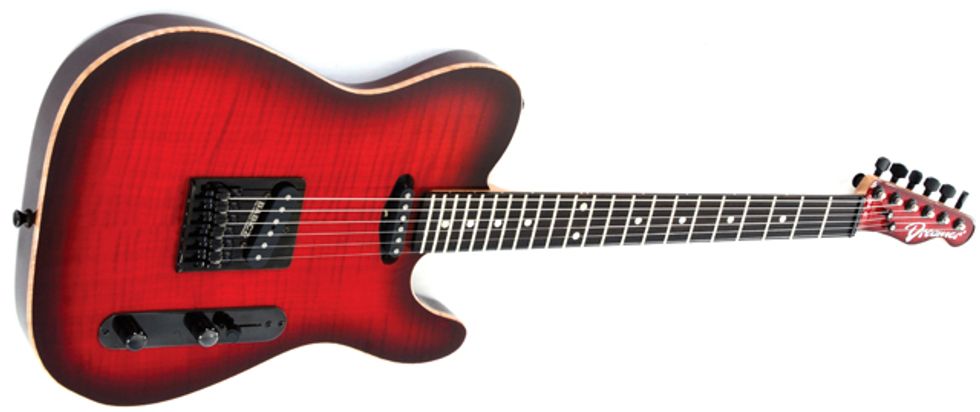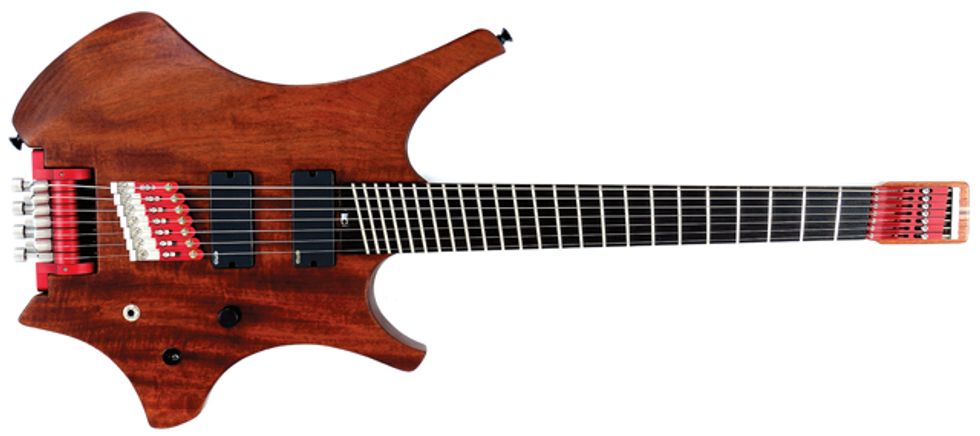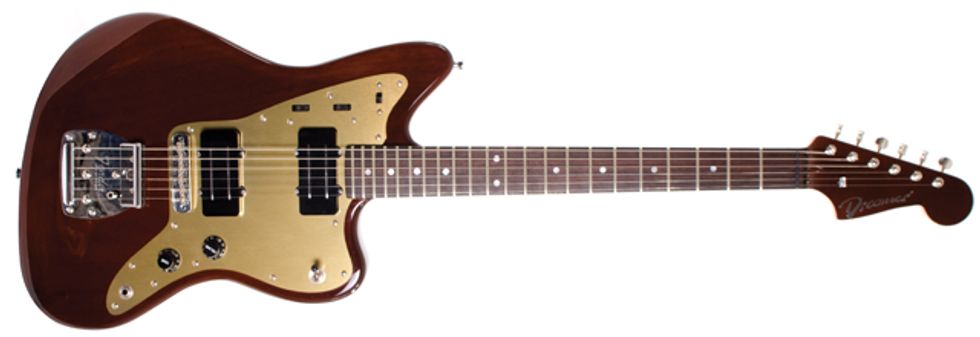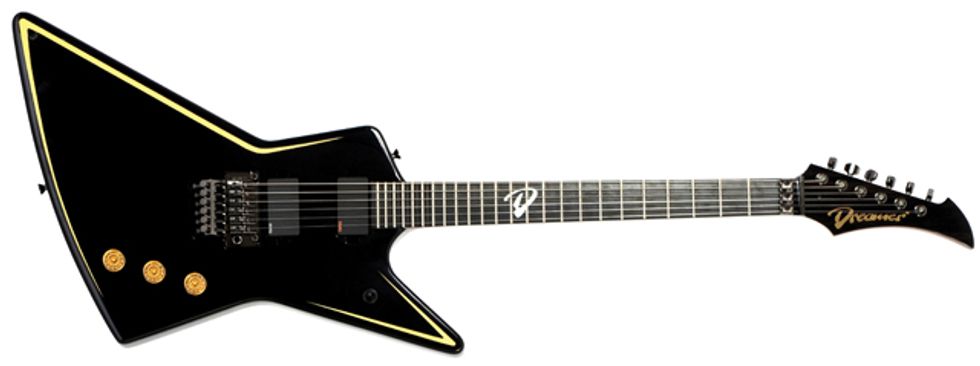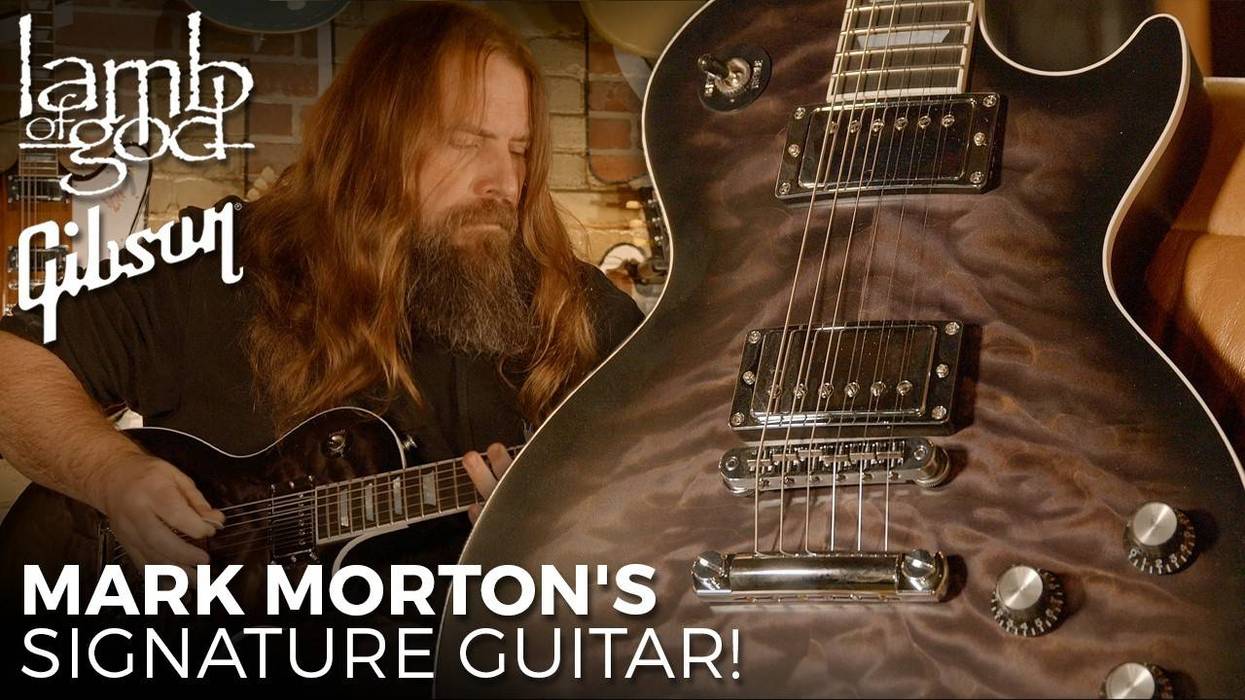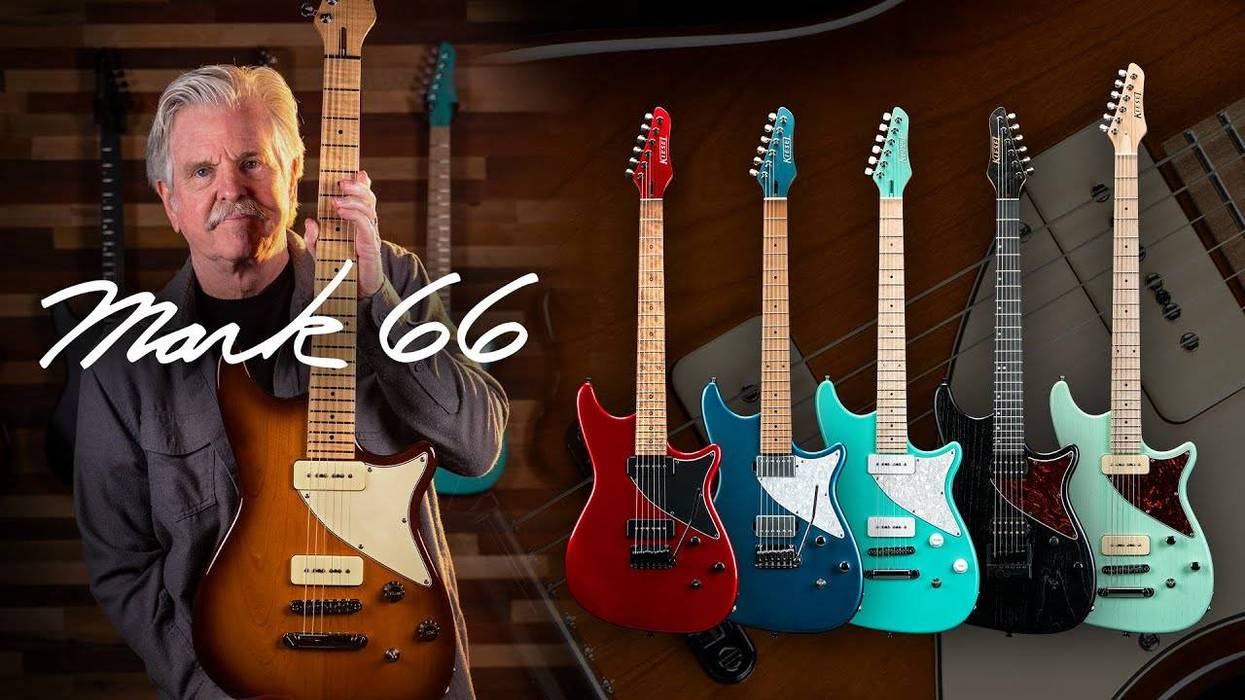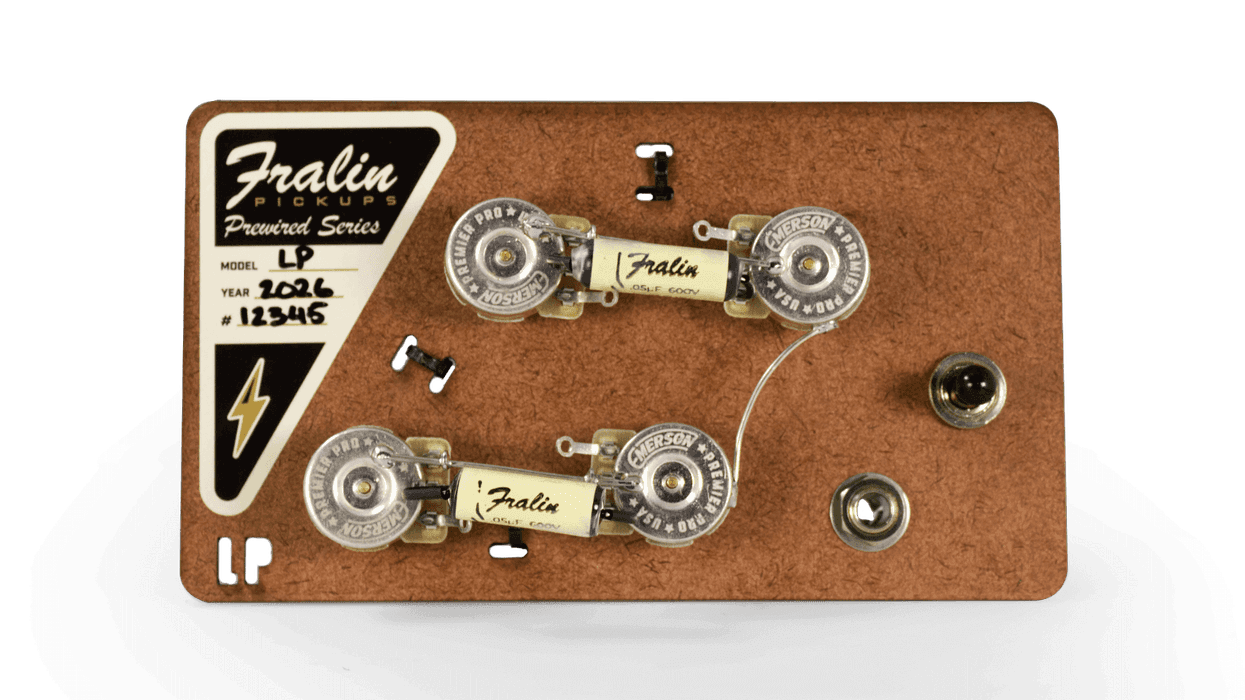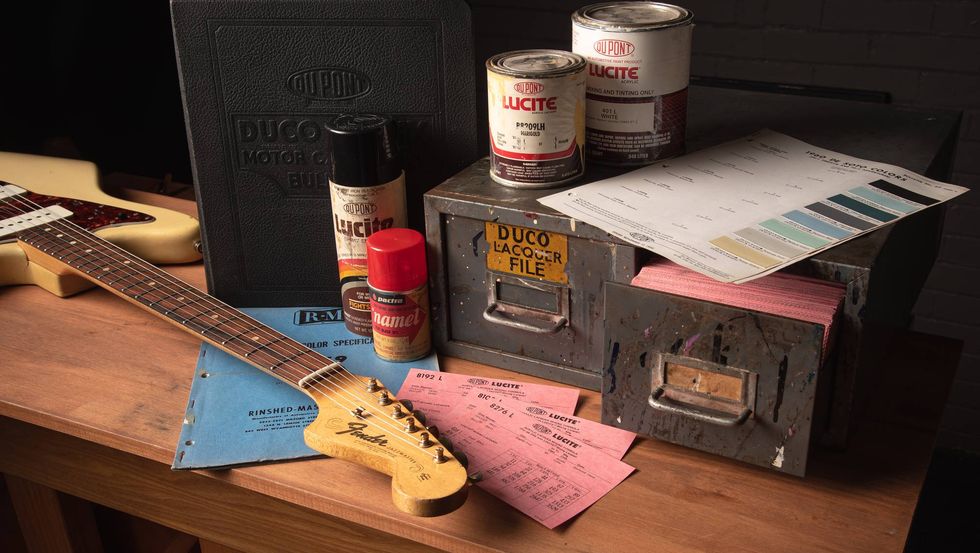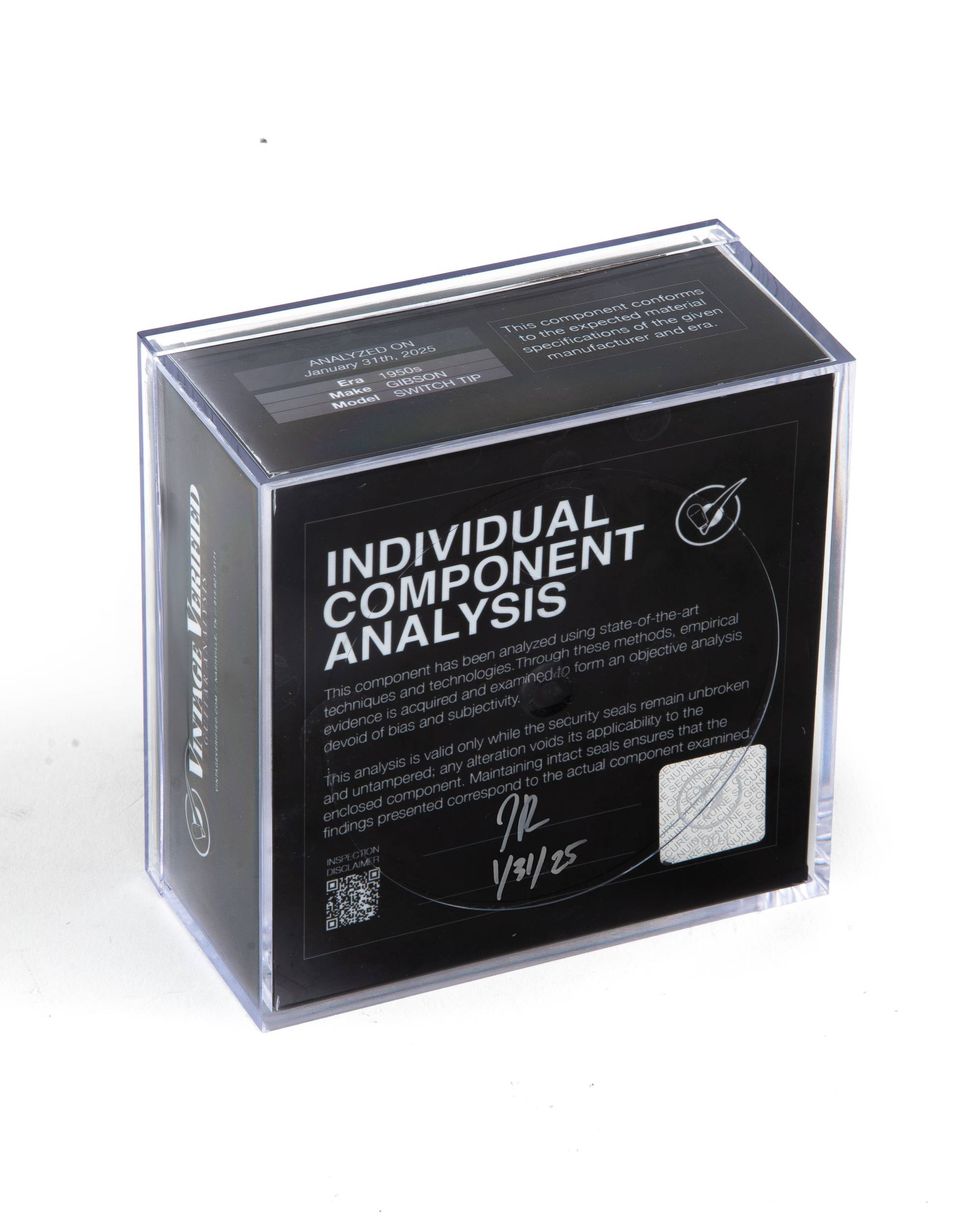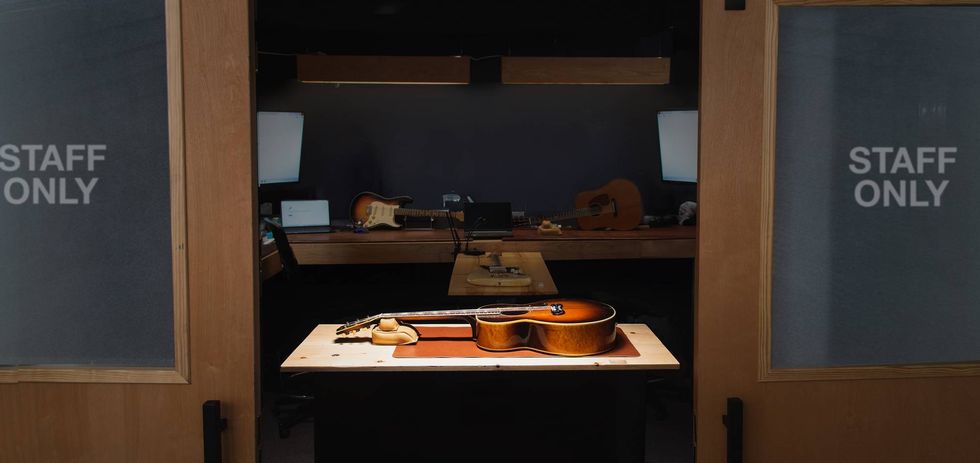It’s somewhat ironic that the home of the world’s most revered guitar tonewood is not a hotbed for a relatively large base of guitar builders and available instruments. That’s part of the reason Brazilian luthier Celso Freire started building instruments for a living, forming his company Dreamer Guitarworks.
When Freire started playing bass at the age of 15 in the 1980s, it was very difficult to get a good bass in Brazil, even with money in hand. He was frustrated with the lightweight, unbalanced body of the J-style he owned that was manufactured in a Brazilian factory, but he did find a well-balanced Fender P in 1984. Freire immediately went to work trying to clone its body with a piece of mahogany to use with parts from his old bass. Though the first attempt at the body didn’t work out, the aspiring builder bought a router and had better results the second time around. Once he got the body right, he took it to a luthier to install a fretless rosewood fingerboard onto the neck of his old J-style, but ended up having to learn how to do the job himself because “the guy was so slow,” says Freire. When it came time to paint his project bass, Freire found a small guitar factory near his home where he ended up working for three years and learning the craft. A luthier was born.
On top of his self-taught skills and guitar factory experience, Freire already had a solid background in electronics from his childhood, helping his father put together hi-fi audio cabinets and tube amplifiers. He struck out on his own with Dreamer Guitarworks in the early 1990s with the goal of providing unique instruments built with the best available components and wood—a mission he continues to stay true to today in his one-man shop.
As a high-end boutique builder in Brazil, Freire faces some unique challenges. “We have in our culture that what comes from the U.S. and Europe is better,” says Freire. “This paradigm is very difficult to change, but it is changing.” The luthier also shares that the “abusive” Brazilian taxes can be a deterrent when attempting to increase production without compromising the quality of his instruments. Said tax is approximately 60 percent on imported guitar parts.
Citing Paul Reed Smith and Tom Anderson as the two builders providing the most inspiration for his work, Fender’s influence is also evident with Freire’s variety of instruments. For electronics, Freire prefers EMGs, but also utilizes Seymour Duncan, Bare Knuckle, Fender, Joe Barden, Lindy Fralin and others, depending on the build. Woods like maple and mahogany that Freire utilizes may be familiar, but the luthier also incorporates some of the gorgeous and more exotic woods from Brazil that he has access to like tauri, imbuia, and freijo. And when it comes to Brazilian rosewood and what restrictions are in place for Brazilian craftsmen, Freire says they can still find the wood, and buy and sell guitars legally. “I just don’t know for how long,” he adds.
Dreamer TL
This red-burst, T-style Dreamer TL features
a marupa body with a curly maple top. Curly
maple is also used for the neck, which is capped
with a Brazilian rosewood fretboard that’s
adorned with gold mother-of-pearl dot inlays.
Hardware appointments include the Graph Tech
Black Tusq nut and string trees, Sperzel locking
tuners, and a Babicz Full Contact bridge. For
electronics, this twang machine is loaded with a
set of Bare Knuckle Piledriver pickups.
Dreamer MJ Bass
Freire’s Dreamer MJ bass utilizes Brazilian cedar
(aka cedro rosa) for its P-style body, and maple
for the neck. The 34"-scale Brazilian rosewood
fretboard features abalone dots on the front
side, as well as Lumilay side dots for gigs with
less-than-stellar onstage lighting. The Dreamer
MJ is outfi tted with an EMG BQC preamp, and
for pickups, a Seymour Duncan SMB-4a in the
bridge position and a Seymour Duncan SJB-3
Quarter Pound in the neck.
Dreamer #12001 Prototype
This 7-string prototype is part of a collaborative
beta-test effort with New Jersey luthier Rick
Toone. Both the neck and the Tru-Oil-fi nished
body are constructed from Brazilian mahogany,
while the fan-fretted fretboard—25"-scale on
treble side and 26"-scale on the bass—is carved
from Brazilian rosewood. The headless guitar
features the Toone Townsend Tuning System and
is outfi tted with an EMG 81-7 in the bridge position
and an EMG 707 in the neck.
Dreamer DT Green Burst
The Brazilian cedar body of Freire’s DT Green
Burst is topped with curly maple, while the hard
maple neck is topped with 25"-scale ebony
fretboard that’s dressed with abalone dots.
Hardware appointments for this jewel include the
Gotoh/Wilkinson VS401 bridge, Gotoh Magnum
Lock tuners, and a Graph Tech Black Tusq nut.
Going with Seymour Duncan for the pickups,
Freire loaded up the DT Green Burst with a SH-4
JB in the bridge and a SH-2 Jazz in the neck.
Dreamer JMC
The body of this hi-gloss, nitro-finished Jazzmaster
tribute is carved from Brazilian mahogany
and paired with a neck and matching
headstock cut from maple. With mother-of-pearl
dots populating the landscape of the Brazilian
rosewood fretboard, other features include the
Gotoh Magnum Lock tuning machines and a
Fender Jazzmaster bridge. This classic-looking
axe conjures up its tone with the help of the pair
of Joe Barden JM Two/Tone pickups.
Dreamer EXP
Built with heavy and metal in mind, the Dreamer
EXP is a neck-through designed axe with a Brazilian
cedar body and mahogany neck. Adorning
the 25"-scale ebony fretboard is a mother-of-pearl
“D” initial that stretches from the 11th to
13th frets. Hardware appointments include the
Gotoh Floyd Rose bridge, Gotoh tuning machines,
and Dunlop Straploks. And for electronics,
Freire opted for an EMG 89 in the neck and
an EMG 81 in the bridge.
Pricing and Availability
Freire builds approximately 30 guitars annually,
but with plans to upgrade his shop
in the near future by purchasing a CNC
machine, he expects his annual production
to increase to nearly 100. All Dream
Guitarworks instruments are custom made,
and because of the country’s spirited tax
system, have a base price around $2,300 in
Brazil, but are 30 percent less if purchased
in the U.S. The current wait time for a custom
Dreamer guitar is approximately four
months.



